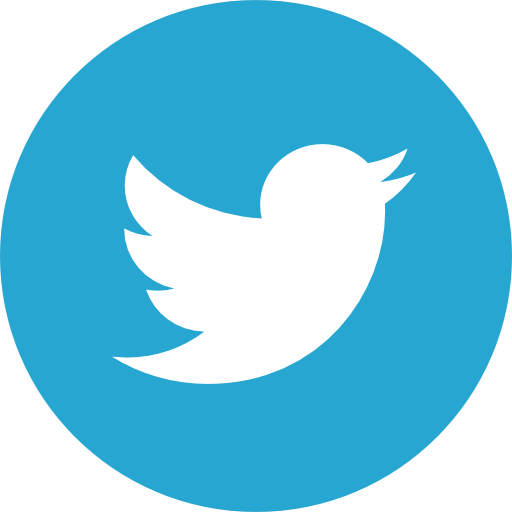Engineering Colleges in Canada: Rankings, Fees, Courses, Eligibility and more.
Engineering colleges in Canada provide extensive curriculums covering essential subjects such as mathematics, thermodynamics, electromagnetism, engineering sciences, computer science, and programming. Among the 21 top-ranked engineering colleges, five have secured positions within the prestigious top 150, according to the QS Ranking 2023.
Pursuing engineering in Canada offers promising career prospects, with average salaries varying based on factors like specialization, experience, and individual skills. Statistics Canada reports a median annual salary of 80,000 CAD (49.33 L INR) for engineers.
The demand for skilled engineers in Canada is on the rise. A report from Engineers Canada anticipates over 100,000 engineering positions needing to be filled by the end of 2025. Particularly, careers in Computer & IT stand out, offering both competitive salaries and abundant employment opportunities.
For those interested in mechanical engineering, the outlook is equally positive. Canada is projected to create 11,300 new job openings for mechanical engineers between 2019-2028, emphasizing the nation’s commitment to fostering innovation and technological advancement.
Choosing a best engineering college in Canada not only equips individuals with a skill set but also places them at the forefront of a job market, making it a strategic and rewarding choice for aspiring engineers.
Best Engineering Colleges in Canada
| University Name | QS Global Rankings 2023 | Tuition Fees (CAD) |
| University of Toronto | #34 | 36,738 |
| University of British Columbia | #36 | 21,898 |
| University of Waterloo | #49 | 46,189 |
| McGill University | #53 | 21,572 |
| University of Montreal | #104 | 11,471 |
| University of Alberta | #126 | 41,619 |
| University of Calgary | #177 | 15,084 |
| Queen’s University at Kingston | #208 | 20,467 |
| McMaster University | #236 | 17,688 |
| Western University | #272 | 23,136 |
List of Other Engineering Colleges in Canada
| University Name | QS Global Rankings 2023 | Tuition Fees (CAD) |
| University of Ottawa | 281 | 23,136 |
| University of Quebec | 303 | 16,500 |
| Concordia University | 332 | 16,306 |
| Laval University | 362 | 11,980 |
| Simon Fraser University | 390 | 61,611 |
| Carleton University | 401-450 | 31,641 |
| University of Manitoba | 401-450 | 25,050 |
| University of Victoria | 451-500 | 13,200 |
| York University | 451-500 | 32,250 |
| Toronto Metropolitan University | 501-520 | 24,759 |
Engineering Colleges in Canada for Undergraduate Programs
| University Name | Tuition Fees (CAD) | Tuition Fees (INR) |
| University of Toronto | 63,370 | 39.04 L |
| University of British Columbia | 57,735 | 35.57 L |
| University of Waterloo | 65,100 | 40.01 L |
| McGill University | 56,388 | 34.74 L |
| University of Montreal | 17,144 | 10.56 L |
Engineering Colleges in Canada for PhD Programs
| University Name | Tuition Fees (CAD) | Tuition Fees (INR) |
| University of Alberta | 41,000 | 25.26 L |
| University of Calgary | 18,136 | 11.17 L |
| Queen’s University at Kingston | 15,592 | 9.60 L |
| McMaster University | 13,500 | 8.31 L |
Admission Requirements for Engineering Colleges in Canada for International Students
University of Toronto:
- Candidates must present competitive results in math, chemistry, and physics courses.
- Minimum of six Grade 12 U or M courses, including English (ENG4U), Advanced Functions (MHF4U), Calculus & Vectors (MCV4U), Chemistry (SCH4U), Physics (SPH4U).
- Submission of scholarship letters, if applicable.
- Financial documents.
- English proficiency requirements: IELTS – 7.0 (6.5 band score), TOEFL – 93 (22 in writing/speaking).
University of Montreal:
- All undergraduate programs are in French. Applicants must meet French admissions requirements.
- Admission to graduate programs at the 2e cycle level requires a Bachelor’s degree or equivalent.
- A GPA of 3.00 on a 4.3 scale is required.
- Letter of recommendation.
- English proficiency test scores: IELTS – 6.5, TOEFL – 80 or above.
- Resume.
University of British Columbia:
- Applicants need an academically equivalent credential to a four-year bachelor’s degree from UBC in engineering or a related discipline.
- First Class/Division 1 (65%) or Very Good (8 on a 10-point scale).
- English proficiency test scores: IELTS – 6.5, TOEFL – 90 or above.
- Resume.
- Statement of Purpose.
- Letter of recommendation.
University of Waterloo:
- High school: Individual selection from the mid-80s.
- Minimum cumulative college average of B.
- Required courses include Advanced Functions 4U, Calculus and Vectors 4U, Chemistry 4U, English 4U (ENG4U), Physics 4U.
- Statement of Purpose.
- English proficiency test scores: IELTS – 6.5, TOEFL – 90 or above.
- Letter of Recommendation.
McGill University:
- At least 60 program credits for B. Eng./B.S.E. students in the Faculty of Engineering or 45 program credits for B. Eng. (Bioresource) students.
- Scanned copy of passport.
- Canada student visa.
- Updated Resume.
- Proof of financial availability.
- Statement of Purpose.
How to choose best engineering universities in Canada?
Choosing the best engineering university in Canada is a significant decision that requires careful consideration. Follow these steps to make an informed choice:
Begin by understanding the reputation of the Canadian education system, known for its world-class education, excellent infrastructure, cultural diversity, and work opportunities that attract students from around the globe.
Identify your priorities, considering factors such as education style, cultural fit, work opportunities, and affordability. Determine whether you prefer a research-oriented or industry-focused program.
Research the reputation of universities offering engineering programs. Look into faculty credentials, research output, and the overall academic environment.
Analyze the return on investment (ROI) of your education. Consider university rankings, job opportunities for graduates, tuition fees, course structure, and research opportunities.
Shortlist a few universities based on your preferences and conduct a detailed comparison. Utilize tools like University Comparer to assess and compare key aspects of each university.
Consider global and national rankings to gauge the academic standing of the universities on your shortlist. Pay attention to rankings specific to your field of engineering.
Research employment rates and post-graduation job opportunities for engineering graduates from each university. Consider the university’s connections with industries and its alumni network.
Examine the course structure and curriculum of the engineering program at each university. Ensure it aligns with your academic and career goals.
Evaluate the research opportunities available at each university, especially if you are interested in research-oriented studies. Consider the university’s research facilities and ongoing projects.
Assess the overall cost of studying, including tuition fees, living expenses, and potential financial aid. Consider your budget and explore available scholarships.
Consider the location of the university. Think about your preferences regarding urban or rural settings, climate, and proximity to potential job opportunities in your field.
Look into the profiles of students who have graduated from the universities on your shortlist. Alumni success stories can provide insights into potential career paths and success rates.
By systematically evaluating these factors, you can make a well-informed decision and choose the best engineering university in Canada that aligns with your academic and career aspirations.
CanadianSIM - Seamless Connectivity for International Students
When it comes to pursuing higher education in Canada, staying connected is more than a convenience—it’s a necessity, especially for international students and newcomers. Our services step into this crucial role, offering a seamless solution to guarantee your connectivity from the moment you set foot in the Great White North.
In the dynamic landscape of academia and exploration, reliable communication is key. From navigating a new city to engaging in academic pursuits, a robust network is fundamental to a successful and enriching experience.
- Instant Connectivity: No waiting around. We understand the urgency, and our services guarantee that you are connected the moment you arrive in Canada.
- Comprehensive Coverage: Whether you’re exploring the urban landscapes or immersing yourself in the natural wonders of Canada, our services offer coverage across the entire nation.
- Essential Features: Caller ID and voicemail are integral components of effective communication. Our services ensure you have these features at your disposal.
- Zero Setup Costs: Unlike many Canadian carriers that charge between $25-$60 to set up your account, with us, it is $0. We believe in providing a cost-effective solution for seamless connectivity.
- Flexibility Without Commitment: Recognizing the dynamic needs of students, our services operate without binding contracts, giving you the flexibility to adapt your connectivity plan as your academic journey unfolds.
We don’t just provide a Canadian SIM card; we deliver a comprehensive solution designed to enhance your academic experience in Canada. Stay in touch, stay informed, and make the most of your educational adventure with our commitment to seamless communication.
Need More Info?
Fill out the form below & our team will connect with you within 24 hours!
Related Posts


















